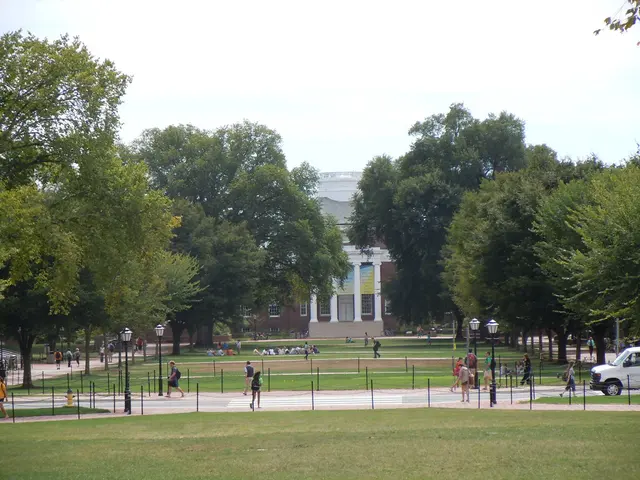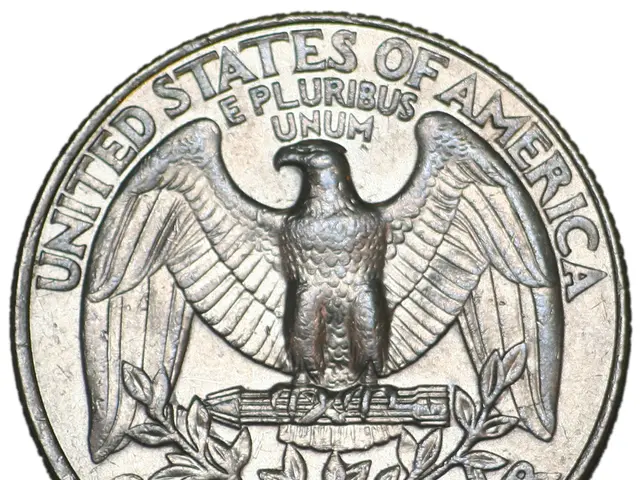Catchin' Up with the One Big Beautiful Bill Act
Significant Tax Reduction Bill of $3.7 Trillion Proposed by Trump, Resulting in a $2.4 Trillion Increase in Federal Deficit, According to CBO Estimates
The One Big Beautiful Bill Act, which is shaping the American landscape, recently made headlines as it moved through government channels. Originally helmed by none other than Elon Musk during his stint as head of the Department of Government Efficiency, the bill aims to slash government spending significantly.
The Latest Lowdown on the Bill
President Donald Trump has expressed his gratitude towards Elon Musk as Musk wraps up his tenure in the White House. As for the bill, it's still making waves. The Congressional Budget Office (CBO) dropped a comprehensive report on Trump's bill, known colloquially as the "Big, Beautiful Bill."
The report of this bill on Wednesday, reveals a deficit impact of $2.4 trillion over a decade, according to CBO estimates. It's also estimated that the bill would result in 10.9 million more people without health insurance and an additional 1.4 million who are undocumented and currently enrolled in state-funded programs.
A Sneak Peek at the CBO's Analysis
Compared to the initial proposal, the house-passed version of the bill shows a larger deficit impact, climbing to a net $2.4 trillion over a decade from the $2.3 trillion the original bill was projected to generate.
Interestingly, an enhancement to the state and local tax (SALT) deduction was implemented as part of the tax cut package. This move, designed to aid the bill's passage in the House, is predicted to reduce federal revenue by about $128 billion over the next ten years.
Meanwhile, revisions to healthcare programs in the bill are calculated to lower spending by an additional $97 billion over a decade. This brings the total to nearly $1.1 trillion in potential savings.
A Dispute over the CBO's Analysis
The Trump administration and congressional Republicans have hit back at the CBO's analysis, arguing that the budget watchdog may have underestimated the growth in federal tax receipts spurred by increased economic activity as a result of the Tax Cuts and Jobs Act that passed in 2017.
The House passed the bill on May 22, with a narrow 215-214 vote along party lines. Two GOP members voted against the bill, voicing concerns about spending and deficits. The Senate is now working on revisions, and potential voting on the bill could occur in the coming weeks.
What's Next for the Bill?
With a narrow 53-47 majority in the Senate, passing the bill could present challenges. Several Republican lawmakers, including Sens. Rand Paul, R-Ky., and Ron Johnson, R-Wis., have expressed opposition to the bill due to their concerns about its impact on the national debt.
If the Senate revises the bill, it will need to be voted on once again by the House before heading to the president's desk and becoming law. Stay tuned for further developments!
Side Notes:
- The One Big Beautiful Bill Act (H.R.1) is a budget reconciliation bill, first introduced in the 119th Congress during 2025. It's not fully clear as of the latest developments how the bill is progressing through the legislative process.
- Critics argue that the bill, if passed without addressing spending and tax concerns, could add significantly to the national debt.
- The bill includes provisions like extending tax cuts, increasing military spending, and modifying the State & Local Tax Deduction (SALT) cap. These measures may stimulate the economy but could also increase the national debt if not balanced with sufficient revenue increases or spending cuts.
- The bill also covers substantial changes to immigration policies and border security, which could have far-reaching economic and social implications.
- The One Big Beautiful Bill Act, currently making headlines, was originally proposed by Elon Musk during his tenure as head of the Department of Government Efficiency. Its aim is to significantly cut government spending.
- The Congressional Budget Office (CBO) recently released a report on the bill, nicknamed the "Big, Beautiful Bill," which indicates a deficit impact of $2.4 trillion over a decade.
- The CBO's analysis also projects that the bill would result in 10.9 million more people without health insurance and an additional 1.4 million undocumented individuals losing state-funded programs.
- The Trump administration and congressional Republicans have countered the CBO's analysis, suggesting that the budget watchdog may have underestimated the growth in federal tax receipts spurred by increased economic activity from the Tax Cuts and Jobs Act of 2017.




